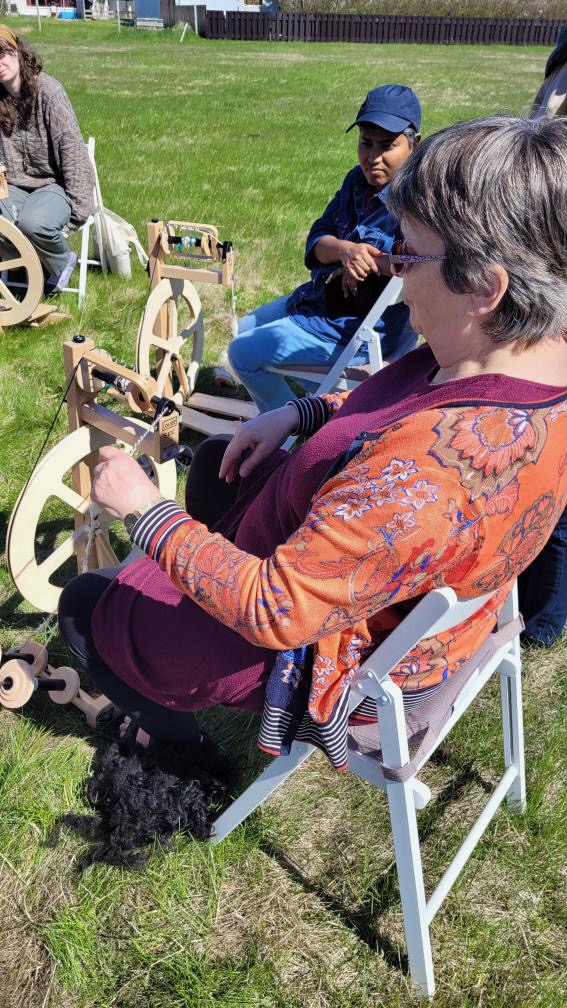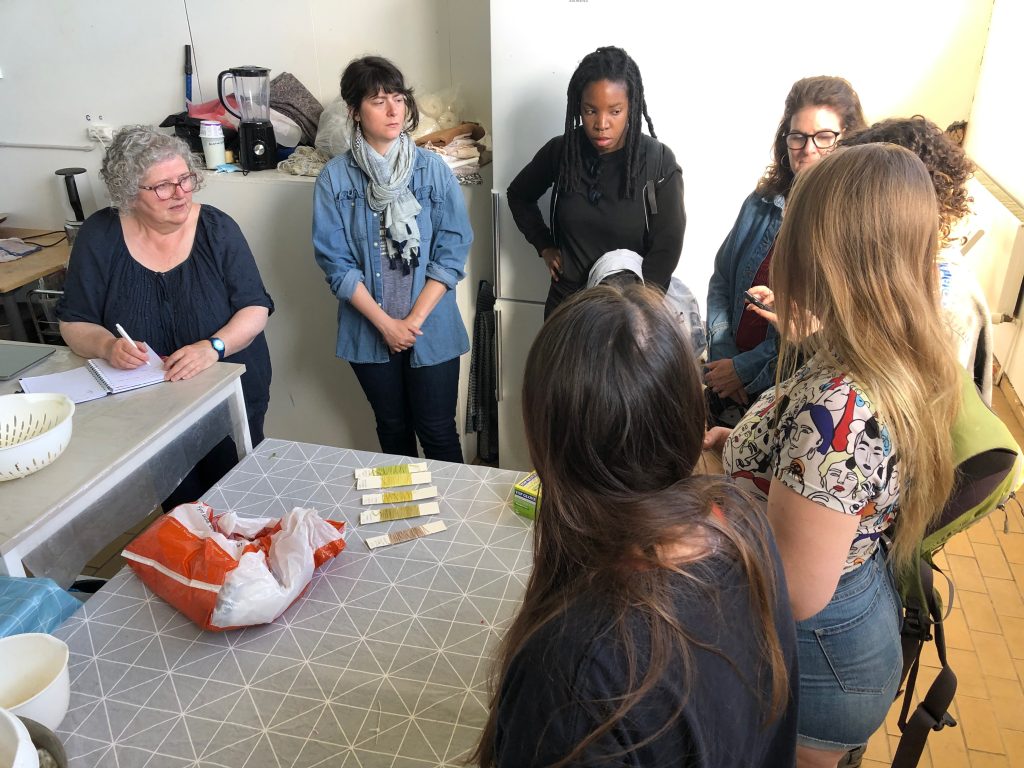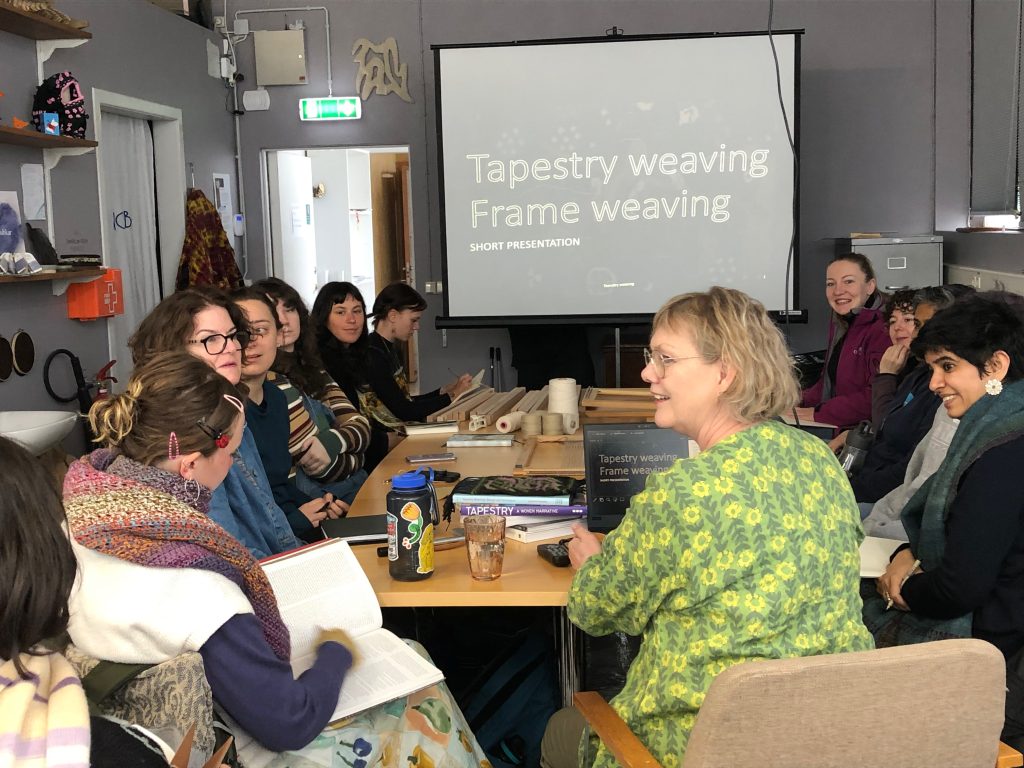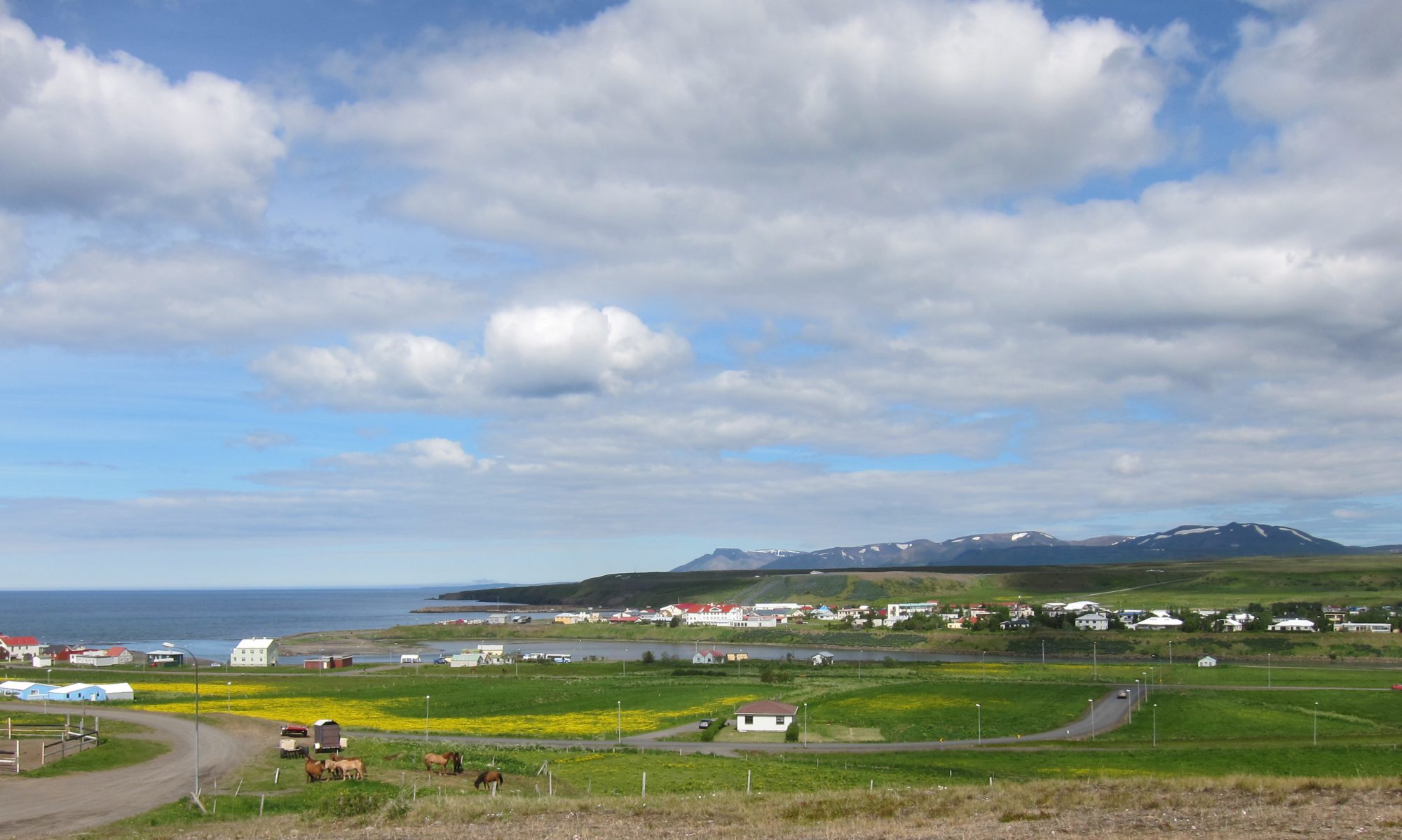The Iceland Field School includes Concordia University students of all levels (BFA/BA/MFA/MA/PhD) who are oriented to place-based learning and have a willingness to begin or build a textile practice with workshops from local experts. Participants have varied and diverse artistic practices, which they further via the ‘residency’ model that this Field School adopts: offering freedom and focus in ‘place’. Students write a letter of intent that indicates the direction they want their personal creations/scholarship to take while here. Of course, what they produce can shift, depending on their experiences in Iceland. Admission is by online application to Concordia International in the fall before each iteration, and competitive, with more wanting to come than can be accommodated.
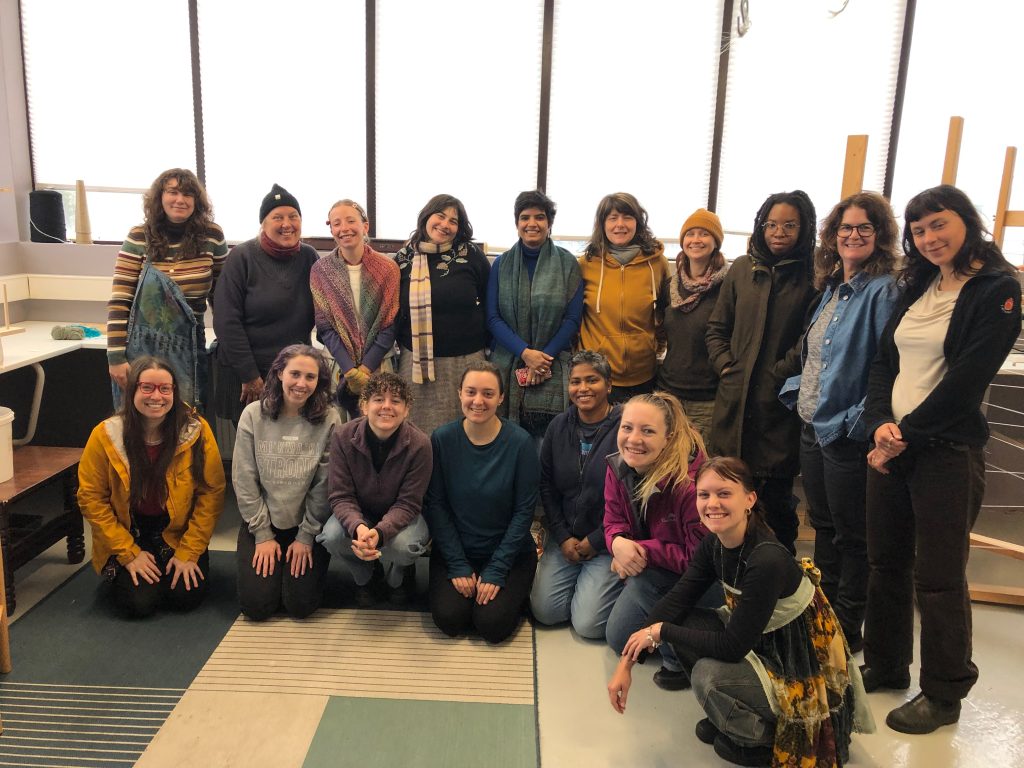
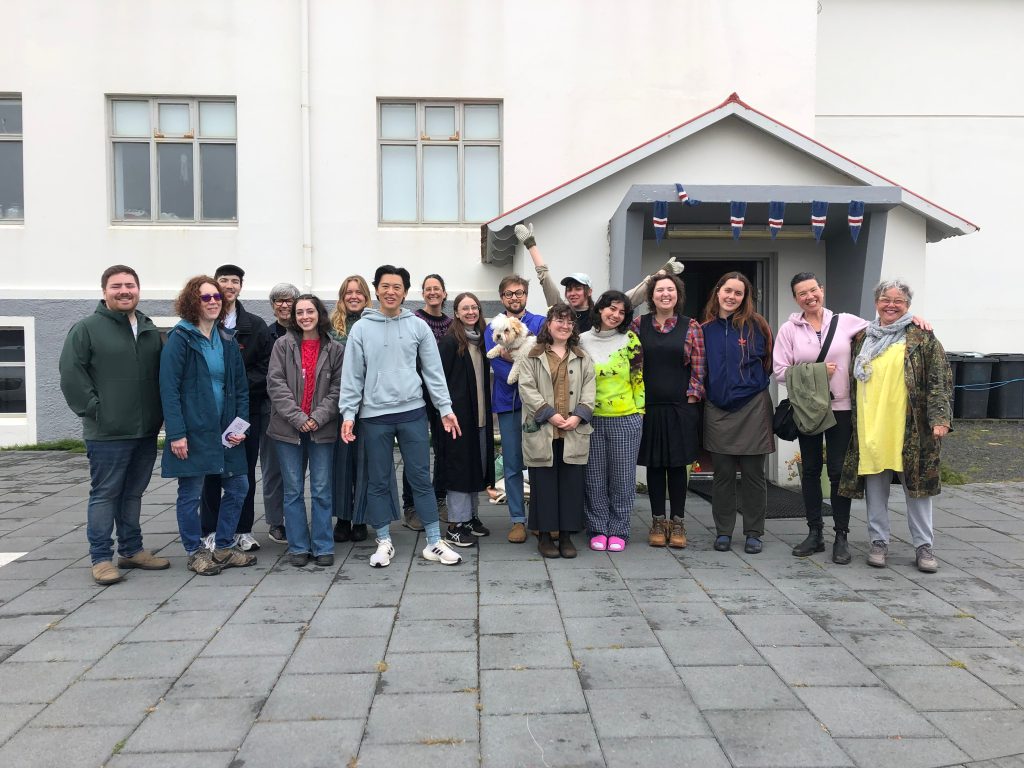
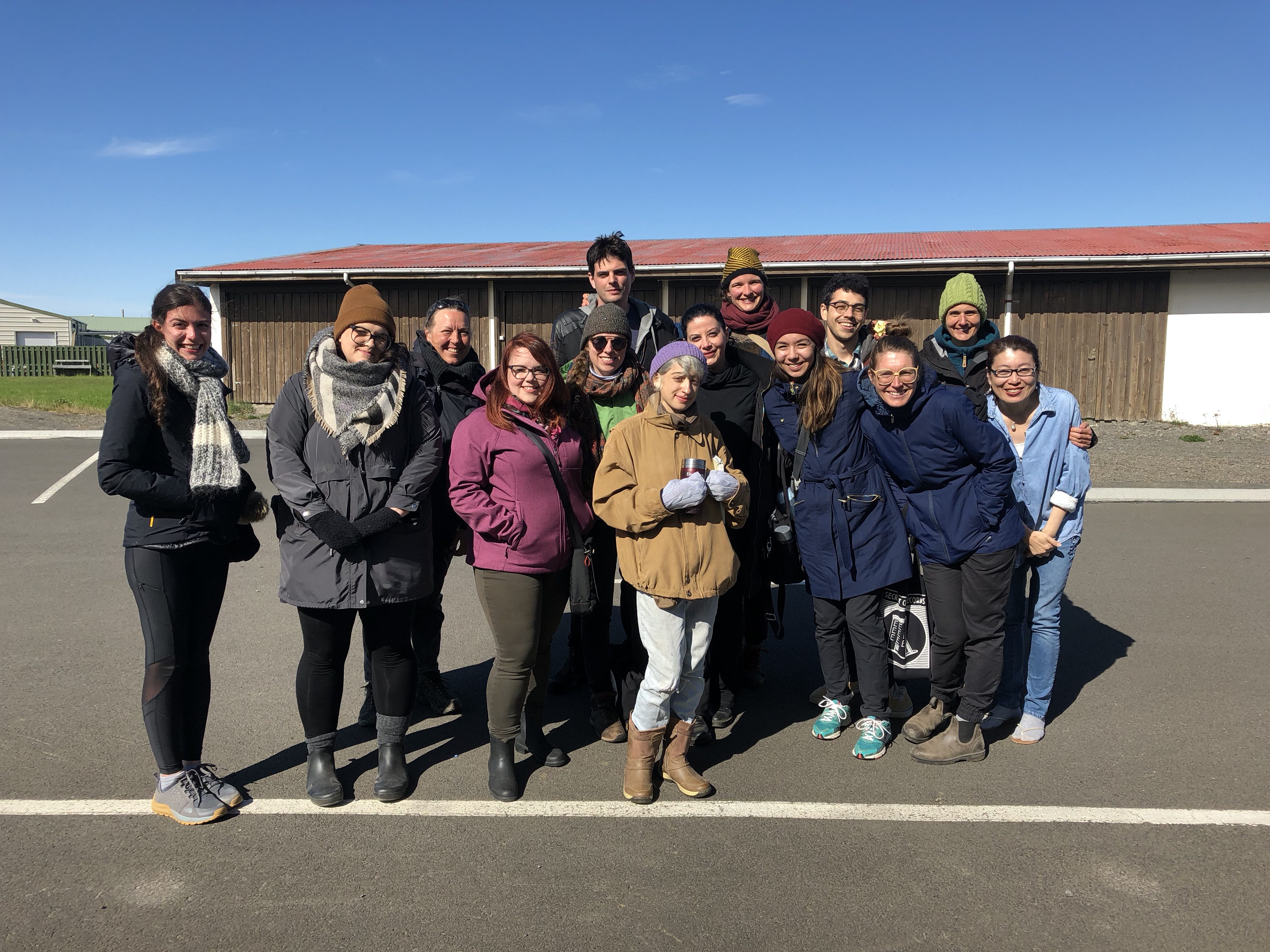
We are greatly indebted to our teachers, all renowned experts in their fields, who share their gifts with us and open our eyes to the pleasures and possibilities of spinning (Jóhanna Erla Palmadóttir), natural dyeing (Deborah Gray), and tapestry weaving (Ragnheiður Björk Þórsdóttir). Their generous sharing of their in-depth expertise makes our time here extra special.
